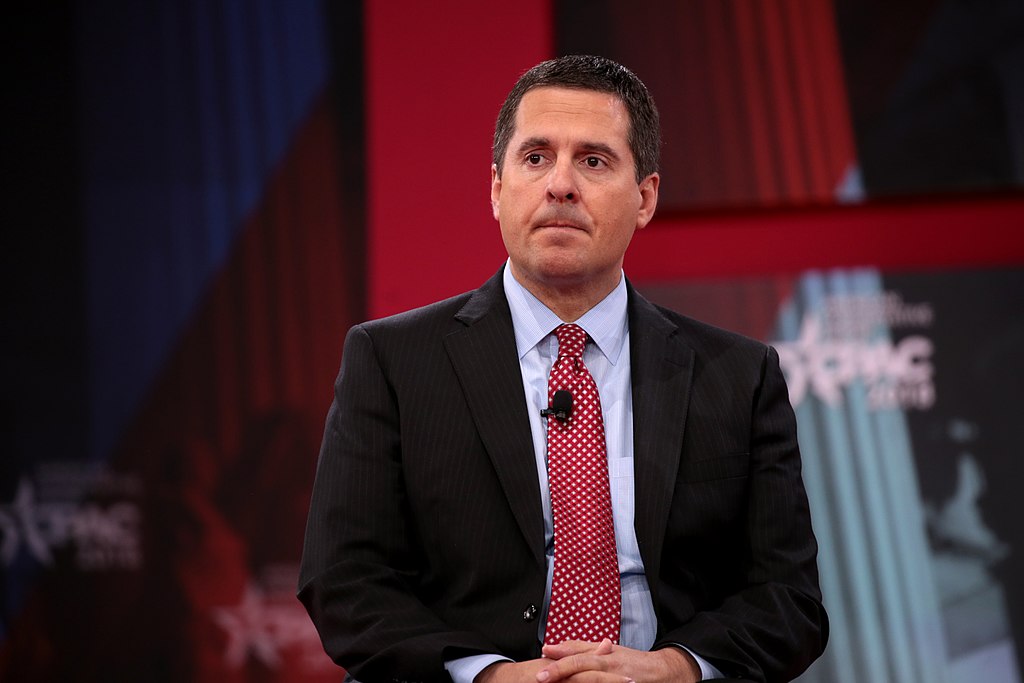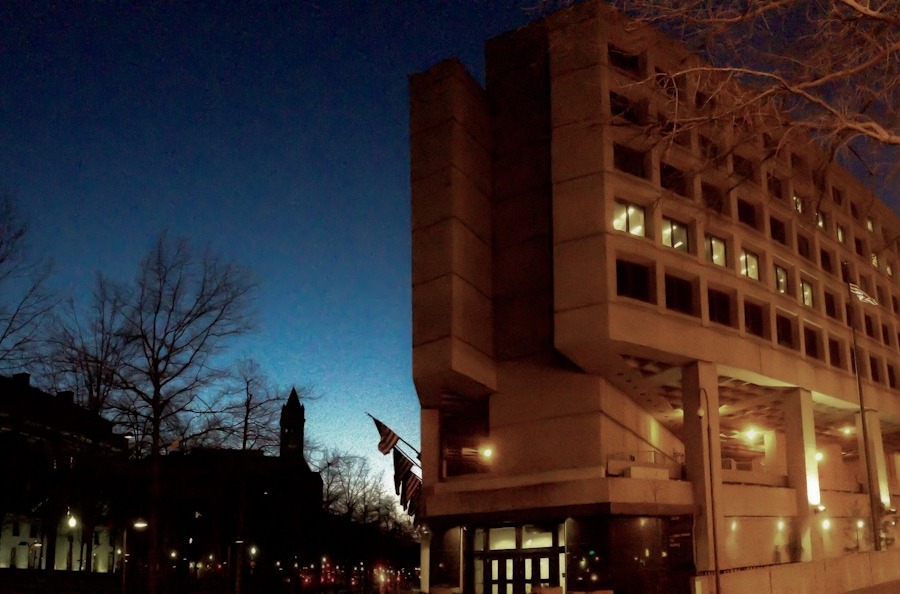The Promise and Failure of the House Intelligence Committee Report on Russian Election Interference
What follows are a few thoughts on the House intelligence committee’s report dated March 22 and released April 27 by the majority—and the consequence of the process taken to release it. This is not a comprehensive review of every issue covered by the report. These views are based on my read of the majority report only. I have not yet read the minority views report, as I thought it important to assess the majority report without color of the minority views.

Published by The Lawfare Institute
in Cooperation With

What follows are a few thoughts on the House intelligence committee’s report dated March 22 and released April 27 by the majority—and the consequence of the process taken to release it. This is not a comprehensive review of every issue covered by the report. These views are based on my read of the majority report only. I have not yet read the minority views report, as I thought it important to assess the majority report without color of the minority views. Nor have I read other assessments of the report, to the extent they are already circulating.
In short, the report adds little new substantive information updating the narrative of what happened surrounding Russian interference in the election. It draws some high-level conclusions that are not supported by the unclassified text in the report. It appears more focused on assessing the U.S. reaction to the Russian influence activity than the underlying activity itself. In addition, the publication of the report appears severely rushed; the underlying investigation, inadequate.
Two aspects of the report’s release strike me as particularly unfortunate. First, the sections of the report that could have been useful are overshadowed by the overtly political passages and conclusions. The report includes informative statistics regarding the prevalence of Russia’s social media presence as it intended to affect the election and American public discourse. The allegation that the intelligence community did not provide defensive counterintelligence briefings to the Trump campaign are concerning and deserve greater scrutiny.
The report also includes useful observations and recommendations regarding election security and the greater efforts needed to secure elections in the future. There is valid and fair criticism of the 2016 federal and state government officials and entities responsible for election security. The passages of the report that address election security and expose the bureaucratic inertia that took hold in addressing it hint there were members and staff on the committee who worked on this angle of the investigation with the goal of improving security for the future. While I understand the reluctance on the part of the previous administration and the intelligence community to be more forthcoming to the American people about what was underway during the campaign season of 2016, I agree with the report’s assessment that the effort at informing the public about this severe national security threat was weak, and inadequate. (Back in July 2016, I called for greater transparency about the threat that was well underway operationally but only just emerging in the public sphere.) Had the committee’s investigation been focused on this angle of the review, this report could have played a helpful role in better informing the public and might have been very differently received.
Second, it is fairly obvious that this report was rushed to publication. A more meaningful way to write a report to inform the public would have been an unclassified report accompanied by a classified annex. Instead, the public is presented with a heavily redacted document, which in some cases includes a visible heading with all of following explanatory text redacted. As an exercise in transparency, it falls far short. The majority places blame with the intelligence community for over-redacting—but as someone who has been involved in this type of process, I know that working through classification review is a tedious undertaking. It takes time, patience and hard work by a team of people across different agencies. When redaction is involved in declassifying a document at this level of sensitivity and significance, it requires the engagement of decision-makers at the highest levels. Given how this report reads, I find it hard to draw any conclusion other than that the majority leadership was apparently not willing to invest that effort, even if a better, more informative report could have been produced at a later date. The rush job is evident even in the redactions present: On several pages there are incorrect classification marks, indicating a level of carelessness that comes from pressure to finish and disregard for the potential harmful consequences to national security of making mistakes. More significantly, Chapter 2, entitled “Russia Attacks the United States,” is mostly redacted.
The report appears to have been issued based on an incomplete investigation, though the statistics sound substantial: Over 70 individuals were interviewed and over 300,000 documents obtained. But key witnesses to the Trump Tower meeting were not interviewed. Very few of the interviews that were conducted are referenced explicitly. Some witnesses did not cooperate. The report does not contain a list of witnesses. The lack of cooperation by certain witnesses may not have been the fault of the committee, but the report itself does not seem to acknowledge how non-cooperation may have affected the committee’s investigation and its ability to draw definitive conclusions. The report also does not explain what specific documents were requested and which documents were relied on to draw conclusions. Although the investigation considered Russian social media influence efforts, there is no information in the report to suggest the majority explored whether foreign money was used to influence the election.
The gratuitous political sections of the report hurt its credibility as an intelligence oversight review. These include allegations of untruthfulness by the prior Director of National Intelligence James Clapper, along with a diversion regarding the Clinton campaign and its now well-known role in funding Fusion GPS activities. Clapper has been used by political players of all stripes over the past several years as a punching bag. In this case, he is alleged to have provided information concerning the Trump Tower transition intelligence briefing, to the media. There is no credible allegation he provided classified information to those unauthorized to receive it—and in any event, aside from the president, the director of national intelligence is the chief classification authority in the executive branch and is empowered to make independent declassification decisions.
But nowhere is the politicization of the committee’s work more evident than the extent to which the investigation apparently was sidetracked by the “unmasking” issue. The report includes a listing of a significant amount of correspondence that took place between the committee and the executive branch related to the unmasking issue. This contrived scandal, and the committee majority’s central role in creating it, has undermined the committee’s credibility.
The best thing that might be said about the report is that it perhaps will quickly become irrelevant. But while that might be true as it pertains to the substance of the report, it is not at all true as it pertains to the report’s effects on the near future of congressional intelligence oversight.
While day to day oversight at a granular level is conducted by internal entities within the Executive branch, the select committees on intelligence have a vitally important role to play. The intelligence committees, when functioning effectively, provide outside accountability. They can request that certain information be made publicly available in a way that quickly gains the attention of agency leadership, in a way that internal bureaucratic processes can sometimes thwart. They are not always successful on this front, as the executive has strong classification prerogatives, but congressmembers’ engagement in the process matters. Intelligence committee members serve as important proxies for other members of Congress and for the public.
Traditionally, the intelligence committees have operated on a more bipartisan basis than other committees. This tradition has held relatively steady for approximately 35 years. Most members who have served on these committees understand that their work there requires a seriousness of purpose beyond that merited by than other roles in which political considerations can be allowed more room.
Unfortunately, this report is a product of a failure of leadership and an abandonment of process. Its goal was to exonerate the president through its headline finding: that there was no “collusion” between the Russian influence effort and the Trump campaign. That conclusion may turn out to be shared by the majority on the Senate intelligence committee as well. Or it might not. But given that this particular report has been unduly influenced by political objectives, the best outcome would be for this report to be set aside while the public waits for the conclusions of the bipartisan Senate version. The risk is that the report’s top conclusion will cast a cloud over whatever assessment or outcome arises from the more deliberate Senate investigation or the special counsel investigation—which was probably the goal of the report in the first place.


.jpg?sfvrsn=1111cf9d_4)


